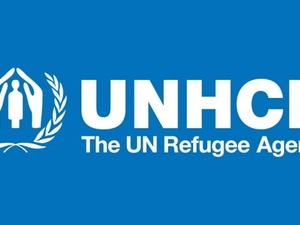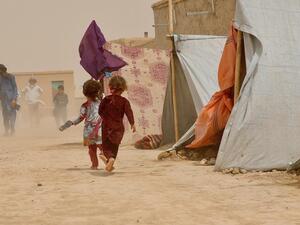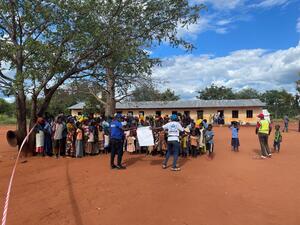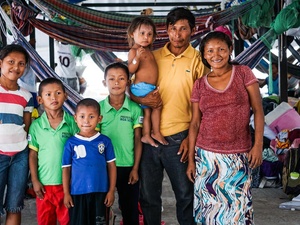UNHCR protests Zambia's deportation of refugees
UNHCR protests Zambia's deportation of refugees
UNHCR has protested to the Zambian government over a recent series of expulsions of refugees to Democratic Republic of Congo. A note verbale sent to the Zambian authorities today expressed alarm at the developments, which have affected some 36 individuals from the Meheba refugee settlement in the country's northwest. The refugees, who were returned at the Kasumbalesa border point, were given no explanation regarding the reasons for their deportation or the possibility of challenging the decision under Zambian law.
The first six people returned were sent back in February and included a pregnant woman. The latest group, comprising 30 people, was sent back over the weekend of April 3rd and 4th - leaving spouses and children at Meheba. The deportations follow a security and police operation in Meheba on 24 February, which brought an end to a protracted demonstration by refugees. During the operation, a refugee woman was shot and killed, several others were injured and some 150 persons were arrested.
UNHCR fully shares the Government of the Republic of Zambia's interest in ensuring security and order in the refugee camps and settlements. Refugees and asylum seekers, moreover, are bound to conform to the laws and regulations of the Republic of Zambia. The consequence of their failure to do so, however, should be prosecution under national laws and not forcible expulsion to their country of origin.
Zambia has for more than 30 years provided asylum to the tens of thousands of refugees who have found sanctuary on its territory after fleeing war and civil strife. The 15,000 people at the Meheba settlement come from Angola, Burundi, the Democratic Republic of Congo, Rwanda, Somalia and Uganda. In total, Zambia currently hosts some 57,000 refugees.
UNHCR urges the Government of Zambia to cease the expulsion of refugees and asylum seekers to the Democratic Republic of the Congo and uphold its refugee protection responsibilities under international law.







